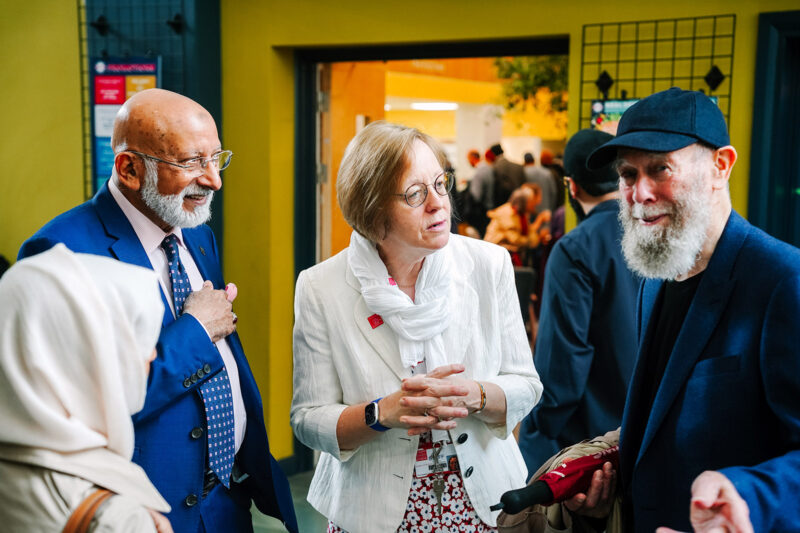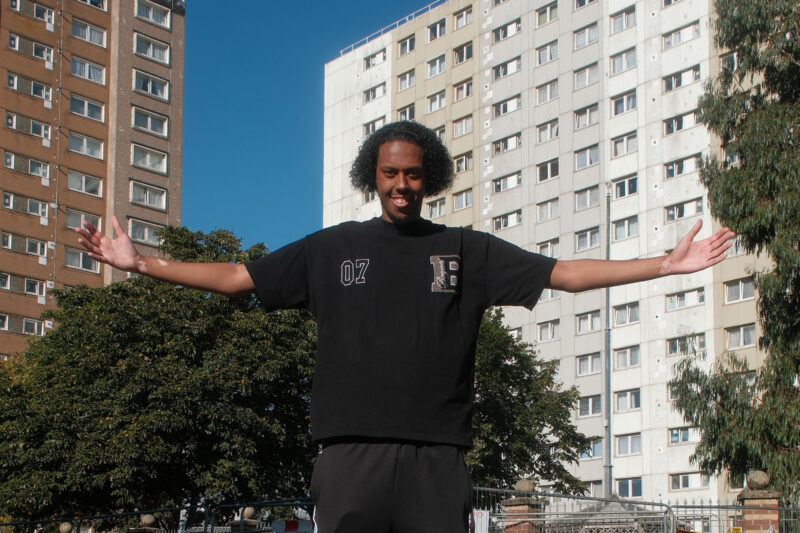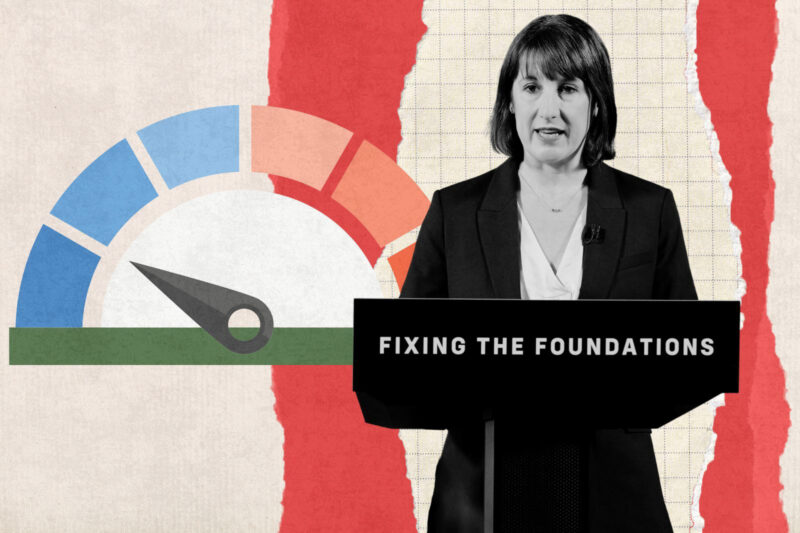The rise — and fall — of the small landlord
Muslims are the most likely UK demographic to live in social housing, though some have benefited from the buy-to-let economy. But are those days now over?
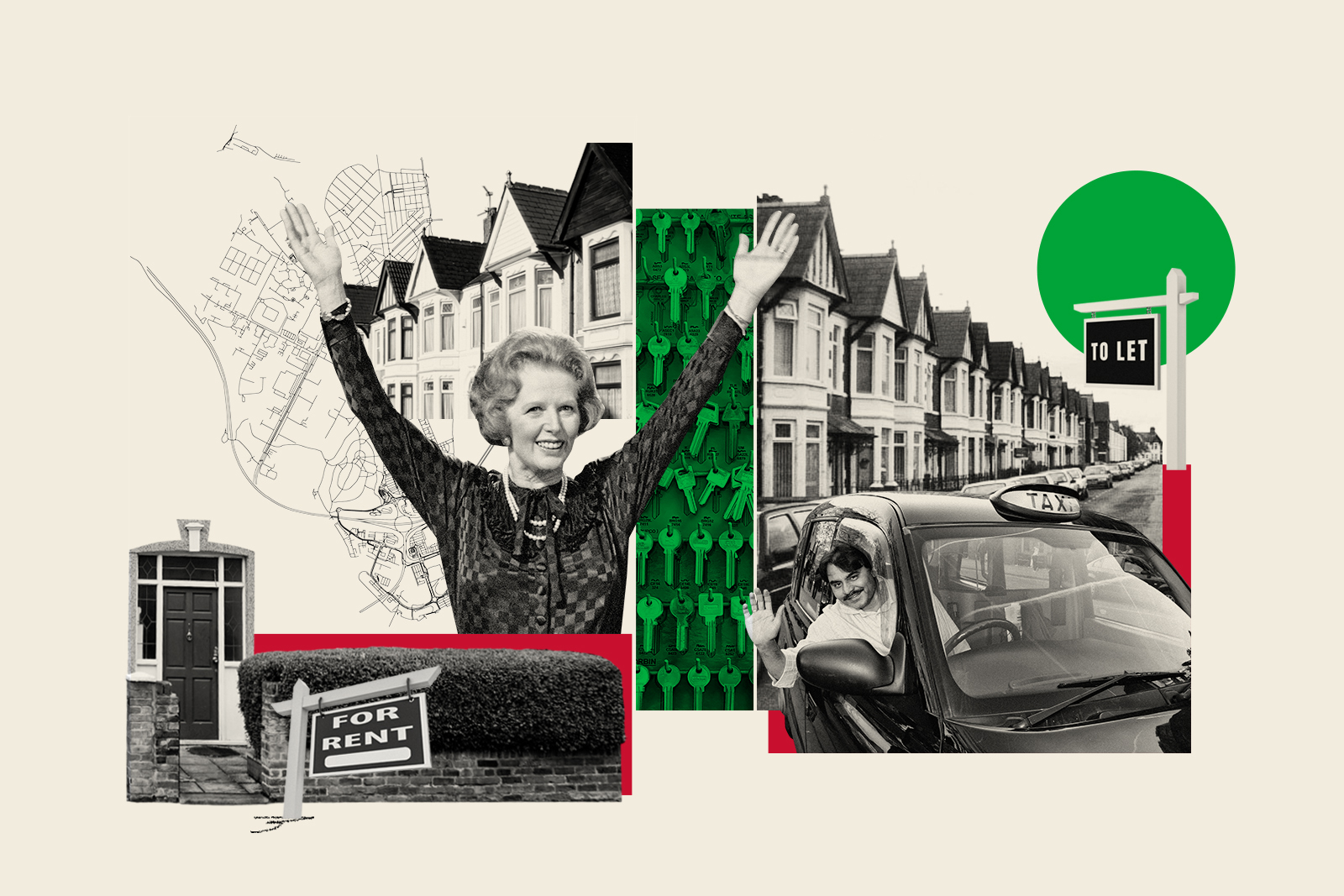
A few years ago, when I worked in homelessness services in Cardiff, part of my role was to rehouse so-called “low-need” clients in the private rented sector (PRS). It wasn’t easy. Not many landlords wanted to let their properties to unhoused people.
Our most “PRS-suitable” clients came from a variety of backgrounds. While they generally had no addiction issues, the majority were unemployed and the few that did have jobs still couldn’t cover the cost of a flat. Almost all had no savings and no family support network. Most had a history of offending.
Consequently, we relied on a small group of landlords who asked no questions, as long as the rent was paid. While many small landlords provide standard homes for families and individuals, the ones I dealt with operated houses in multiple occupation (HMOs) of four to six bedsits per terraced home.
All were registered with Rent Smart Wales, the national licensing and regulatory body for private landlords and their agents, but we had no idea how. The accommodation they offered was often barely fit for human habitation. Dodgy wiring, rats and leaking pipes were common.
Getting people off the street was hard, but keeping them in a tenancy was often harder. Service users often abandoned their rooms or ended up being evicted. The poor state of the properties was almost always a contributing factor.
As it happened, the majority of the landlords we used were Muslim. When I saw the prayer mats in their offices, I wondered how they reconciled their faith with their business practices. I also began to consider that the economic life of the UK Muslim community is more complex than it is often portrayed.
It is well documented that Muslims are among the most deprived groups in the country and more likely to experience housing poverty and discrimination than their non-Muslim white British peers. However, as Hyphen columnist Taj Ali has pointed out, they do not form one homogenous bloc. The community is divided along lines of class and wealth, like any other.
Nowhere are those divisions as striking as in housing. Of all the religious groups in the UK, Muslims are the least likely to own their own home and the most likely to live in social rented housing, yet British South Asians — many of whom are Muslim — also appear to be well represented among landlords.
For almost as long as people have been moving and resettling around the world, immigrant communities have used small-scale entrepreneurialism as a way to build a future in their new homes. Often there is little choice, with new arrivals largely excluded from the wider economy for a variety of reasons — language barriers, lack of connections in the job market, qualifications not being recognised and discriminatory hiring practices among them.
Small businesses such as shops, restaurants and cafes have long served as means to generate income that is not subject to barriers of language or credentials. While the late 1970s and early 1980s marked a period of rising racism in the UK, much of it directed at South Asian Muslim immigrants and their families, parts of the community were by then well established and had achieved a significant degree of economic success.
The Conservative government of Margaret Thatcher made repeated overtures to them, focusing on shared values of private enterprise and the belief that small business owners from immigrant backgrounds were “natural Thatcherites”.
Thatcher herself stated: “The Asian communities living here believe in home ownership … They believe in the value of hard work. They believe in savings … These are all things that Conservatives believe in.”
The archetype of the Thatcherite South Asian businessman can be seen in the character of Uncle Nasser in Hanif Kureishi’s My Beautiful Laundrette. Played by the late British-Indian actor Saeed Jaffrey in the 1985 movie, Nasser personifies the era’s “popular capitalism” and the idea that immigrants could cement their Britishness via the accumulation of wealth.
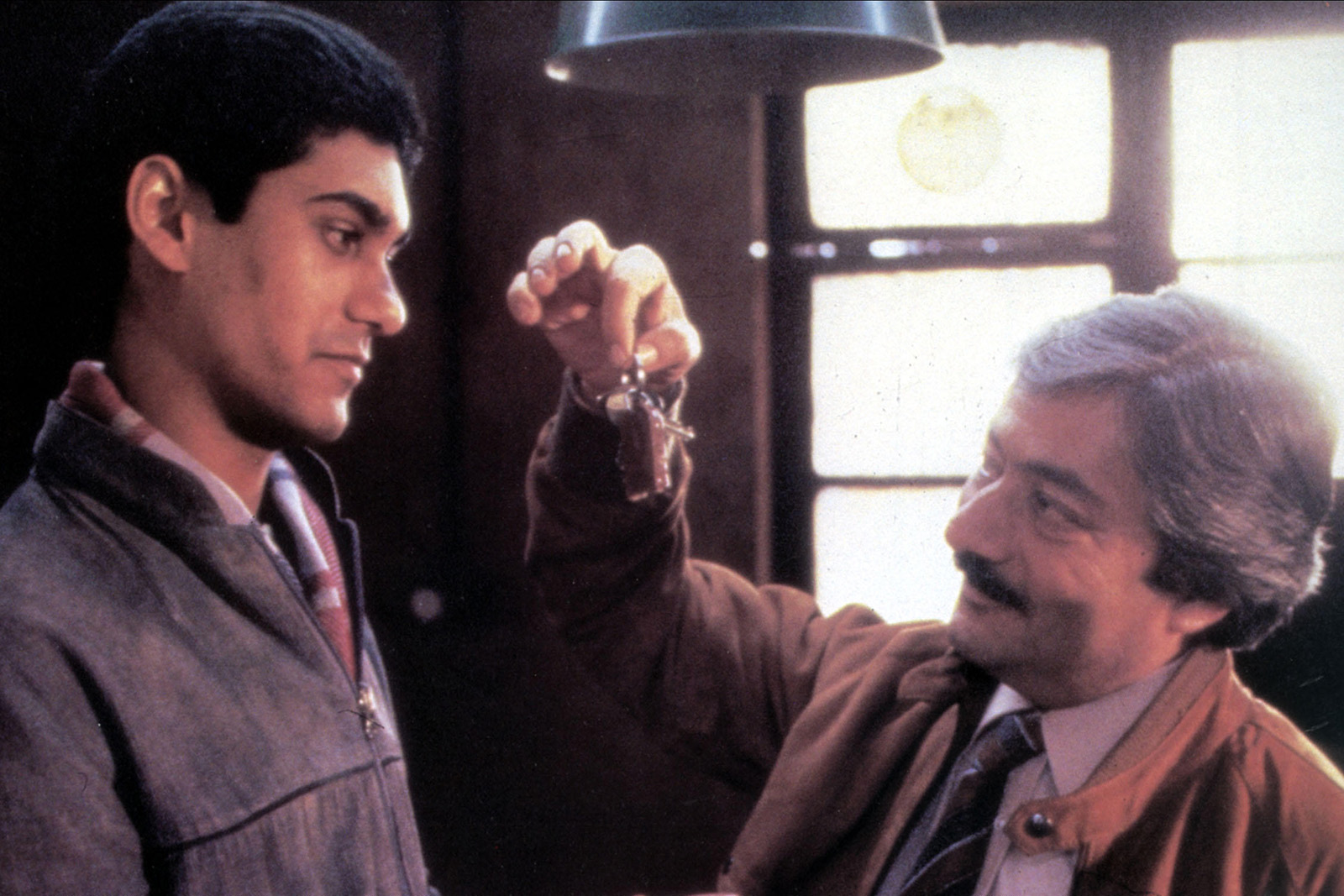
Buying a home has, in itself, never been a politically conservative act. Buying to let, however, is one of the purest forms of bourgeois rentier capitalism and during the Thatcher years it was a path to financial independence that many were encouraged to follow.
Grangetown, where I live, is one of the most diverse parts of Cardiff, where the Muslim community makes up around 30% of residents. It is a densely populated, low-income area that conforms to an aesthetic now common around the UK: takeaways, dessert cafes, vape shops, barbers, bookies. More than half of Grangetowners live in rented accommodation, the majority of which is provided by the private sector. Yet, judging by the number of luxury cars, there is also money here.
Real estate is, perhaps, the area’s greatest asset. On the streets, placards reading “Housing and land wanted — buy and sell” herald a familiar pattern: old person dies, cash buyer comes in, tradesmen arrive and turn the property around in months. The buildings in question frequently become HMOs: people crammed in like sardines; young men wearing Deliveroo jackets wheeling e-bikes into still-crumbling hallways.
Many of Grangetown’s social issues stem from its housing stock. HMOs are often used as dumping grounds for people with complex needs that then go largely unmet. Flytipping is out of control and a lot of it appears to be the result of landlords doing house clearances. Action is almost never taken against them. Private landlordism is deeply embedded in the local Labour party and Cardiff council, and central to the Welsh government’s homelessness strategy.
On a glorious March afternoon I met up with local property developer Kai*. A modest, softly spoken man, he told me that, within Grangetown’s Muslim community, property investment and landlordism is widespread and intergenerational. The common story, he said, was one of parents and grandparents taking jobs as factory workers or taxi drivers, working hard and buying their first house. With a family home secured, they then saved up for another to rent out. Some eventually built substantial portfolios to pass on to their children.
Kai suggested that the acquisition of property as a store and generator of wealth was similar to the way people in his community used to buy gold. Both are tangible assets that made sense to the older generation in a way that stocks and shares did not. That early faith in bricks and mortar, however, appeared to be underpinned more by a desire for security and stability than get-rich-quick Thatcherism.
When I think of property developers, Kai is not the kind of person I usually have in mind. He said that Islam guided him to treat his business as a social enterprise, primarily letting properties to housing charities at below market rate. However, he spoke bluntly about the motivations of many landlords he dealt with.
“It’s just greed,” he said, explaining that a significant number of his clients were reluctant to invest in their properties and came to him only after running afoul of the council or Rent Smart Wales. He was essentially a troubleshooter, making sure rundown properties meet building-regulation requirements, sourcing tenants, managing the collection of rent and taking care of day-to-day maintenance.
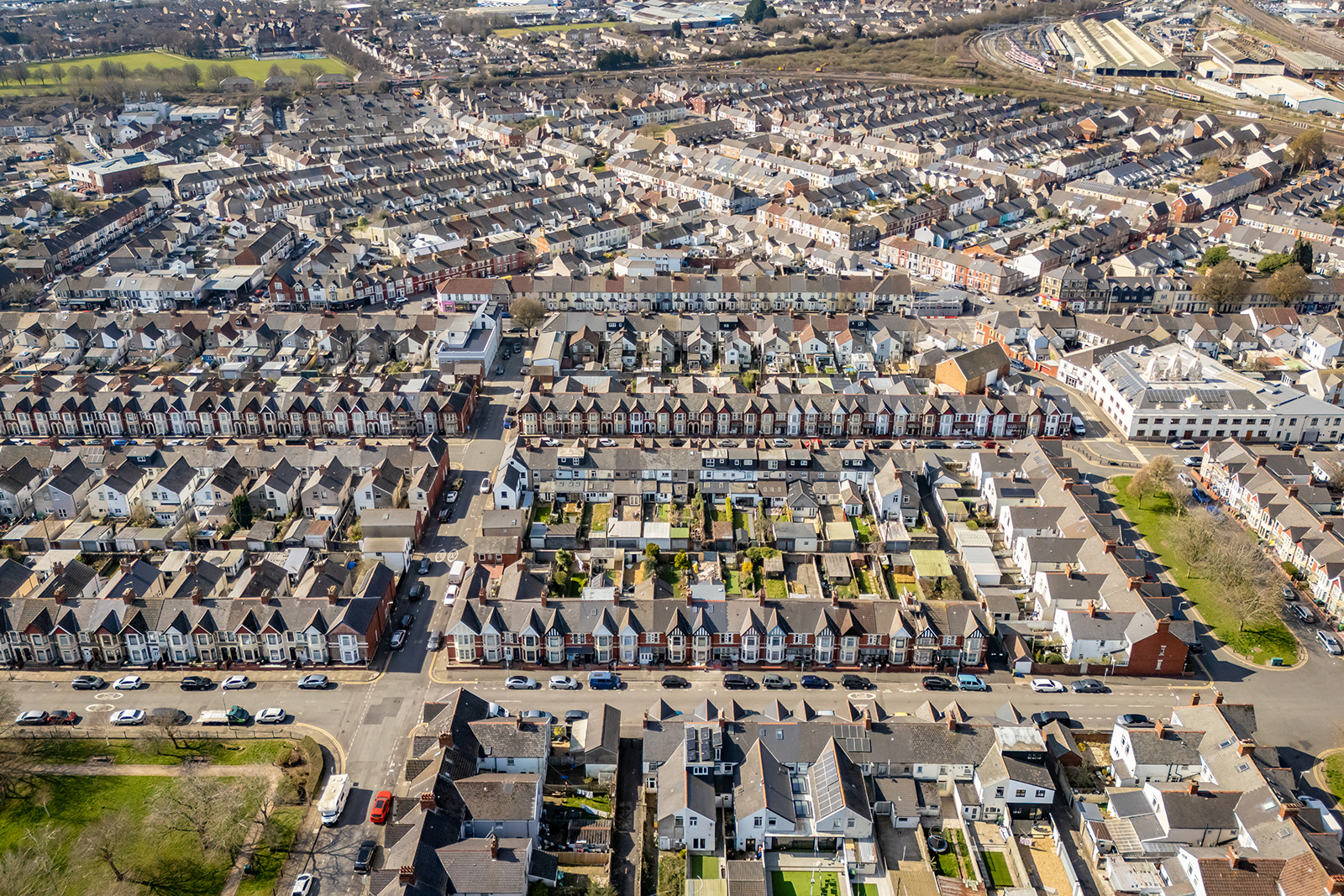
Later, I met up with Ali*, who presented a very different image. Flash car, impeccable grooming and undeniable charm. The embodiment of today’s popular capitalism. Explaining that he manages about 600 rental properties in Cardiff, he added that about a third of the landlords he works with are Muslim — a figure broadly in line with the demographics of Grangetown itself.
“Bro, everyone knows the value of property,” he said. “Even back in Pakistan, property is number one.”
Ali believes that the generational migrant experience has fostered a certain kind of bootstraps entrepreneurialism and self-reliance in his community — one that he thinks is lacking elsewhere. “Why don’t white British people do what I’m doing? Why don’t they go and hustle?” he asked. “Because they’ve had it too easy.”
Like an amateur anthropologist, he detailed the differences and divides he perceived within Grangetown’s Muslim community. Some Indians had done well out of the area, he said. They ran corner shops, made their money and then sent their children to good schools, so they could become doctors and lawyers. But when national chains such as Tesco began to open their own local stores, most sold up and left.
“See, in that situation I wouldn’t have thrown the towel in,” he shrugged. “I would’ve innovated.”
Pakistanis, he said, are tough and adaptable people who will do whatever it takes to get ahead. Recognising a similar spirit of hardscrabble capitalism, he noted with approval that many local petrol stations had recently been bought up by Sri Lankans and that Kurds now run the majority of barbers, vape stores and minimarts.
Despite previously having been widely considered ungentrifiable, Grangetown is changing. Priced out of other parts of Cardiff, Welsh-speaking professionals are moving in. English hipsters, too. A ramen place has opened and house prices are slowly but surely rising. Unlike many people I usually end up talking to, Ali welcomed gentrification. The more affluent young people who move in the better, he said. They’re good for business, raising property values and spending more money in the shops.
When I asked Kai whether the potential profits offered by the buy-to-let market signalled the death of time-honoured South Asian family enterprises such as the cornershop, he argued that such businesses would always form the first rung on the entrepreneurial ladder. Then he explained that while the idea of owning a property portfolio was attractive to many investors, the barriers to doing so are a lot higher than they used to be.
According to both Kai and Ali, the old days of a taxi driver owning a rental home on the side, generating a modest amount of income and creating a family nest egg, are well and truly over. Since 2008, real-terms wages have fallen across the country, making it more or less impossible for the average working person to save the £60,000 they estimated is required to buy a rental property. In recent years, changes including increased stamp duty on second homes, an end to tax relief on buy-to-let mortgage costs and a tighter regulatory environment have also driven many small landlords out of the business.
Both have noticed a visible change in the industry. As many of Grangetown’s small landlords have sold up, the neighbourhood’s housing stock is becoming concentrated in fewer hands — companies and bigger investors with larger portfolios. Not many tenants will shed any tears for small landlords, but I couldn’t help thinking that this could mark the start of an even less desirable corporate shift in the UK’s private rental sector.
In the US, asset managers including Blackstone and Aviva are steadily buying into the rental market as a hedge against inflation. In Spain, as many as 185,000 properties are owned by corporate landlords and Blackstone is the nation’s single largest private landlord, with almost 30,000 nationwide. In the UK, the company already has at least 20,000 units and is eyeing up more.
The UN has accused corporate landlords of fuelling a global housing crisis. Meanwhile, tenants wherever these huge, faceless organisations operate have complained of rent hikes, evictions and poor service. As a recent headline on the Intercept states: You think your landlord is bad? Try renting from Wall Street.
While measures such as the renters’ rights bill aim to professionalise the private rental sector, introduce protections for tenants and abolish no-fault evictions, the UK’s housing crisis shows no sign of abating. Successive governments have failed to invest in social housing, purchase prices continue to rise and rents are climbing to eyewatering levels. All that means there is plenty of profit in the rental market — it just might not be for the likes of Kai.
He told me that the property business was a constant source of stress and hassle and balked at the idea of the easy passive income and conspicuous consumption widely promoted on social media. As well as being unrealistic, that kind of crude materialism sits poorly with him, considering the rising levels of homelessness and deprivation he gets to see every day in Cardiff. In fact, he often finds himself fantasising about giving it all up and enjoying a quiet life. “I think I’m becoming an anticapitalist,” he laughed.
* Some names have been changed to protect anonymity.
 Newsletter
Newsletter


